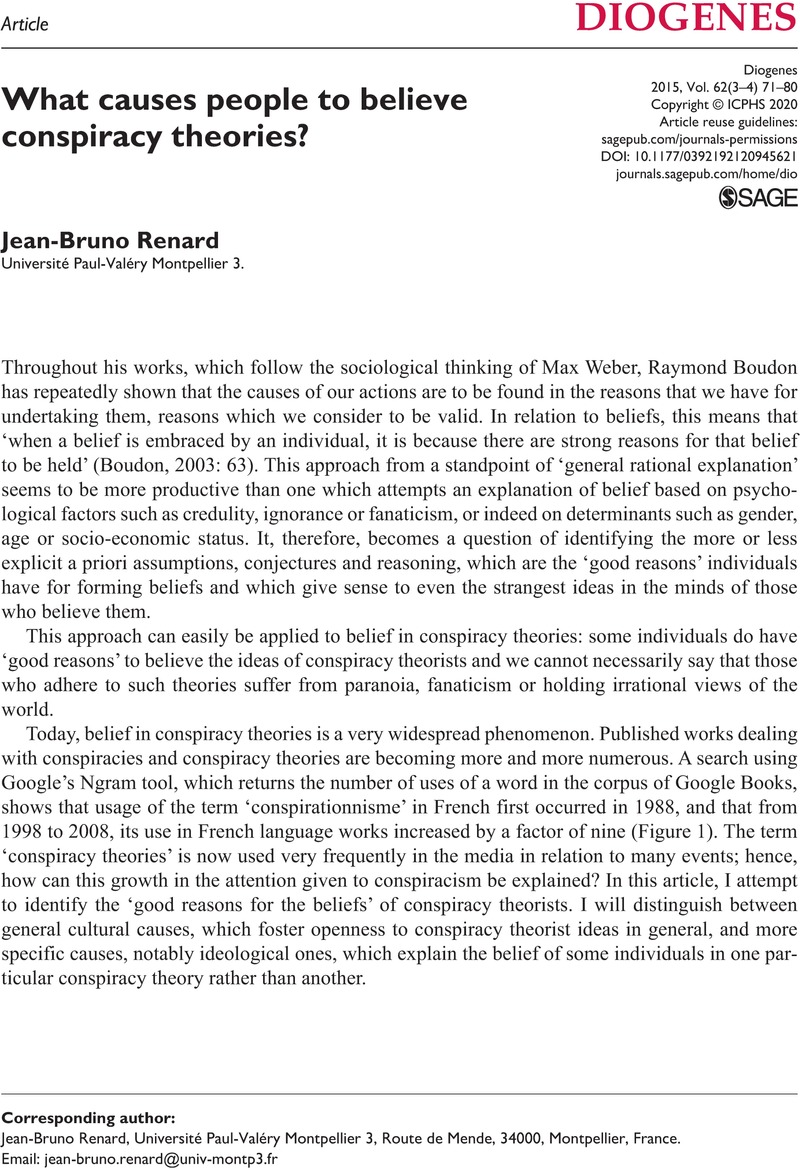Crossref Citations
This article has been cited by the following publications. This list is generated based on data provided by Crossref.
Musolff, Andreas
2022.
Conspiracy Theory Discourses.
Vol. 98,
Issue. ,
p.
121.
Kouros, Theodoros
Papa, Venetia
Ioannou, Maria
and
Kapnisis, Vyronas
2023.
Conspiratorial Narratives on Facebook and Their Historical Contextual Associations: A Case Study from Cyprus.
Journal of Communication Inquiry,
Vol. 47,
Issue. 4,
p.
422.
Savolainen, Reijo
2023.
Assessing the informational credibility of conspiracy theories: online discussion about the Nord Stream damage.
Aslib Journal of Information Management,
Malešević, Siniša
Uzelac, Gordana
Carol, Sarah
and
David, Lea
2024.
Plotting against our nation: COVID-19, nationalisms, and conspiracy theories in five European countries.
National Identities,
Vol. 26,
Issue. 2,
p.
141.





